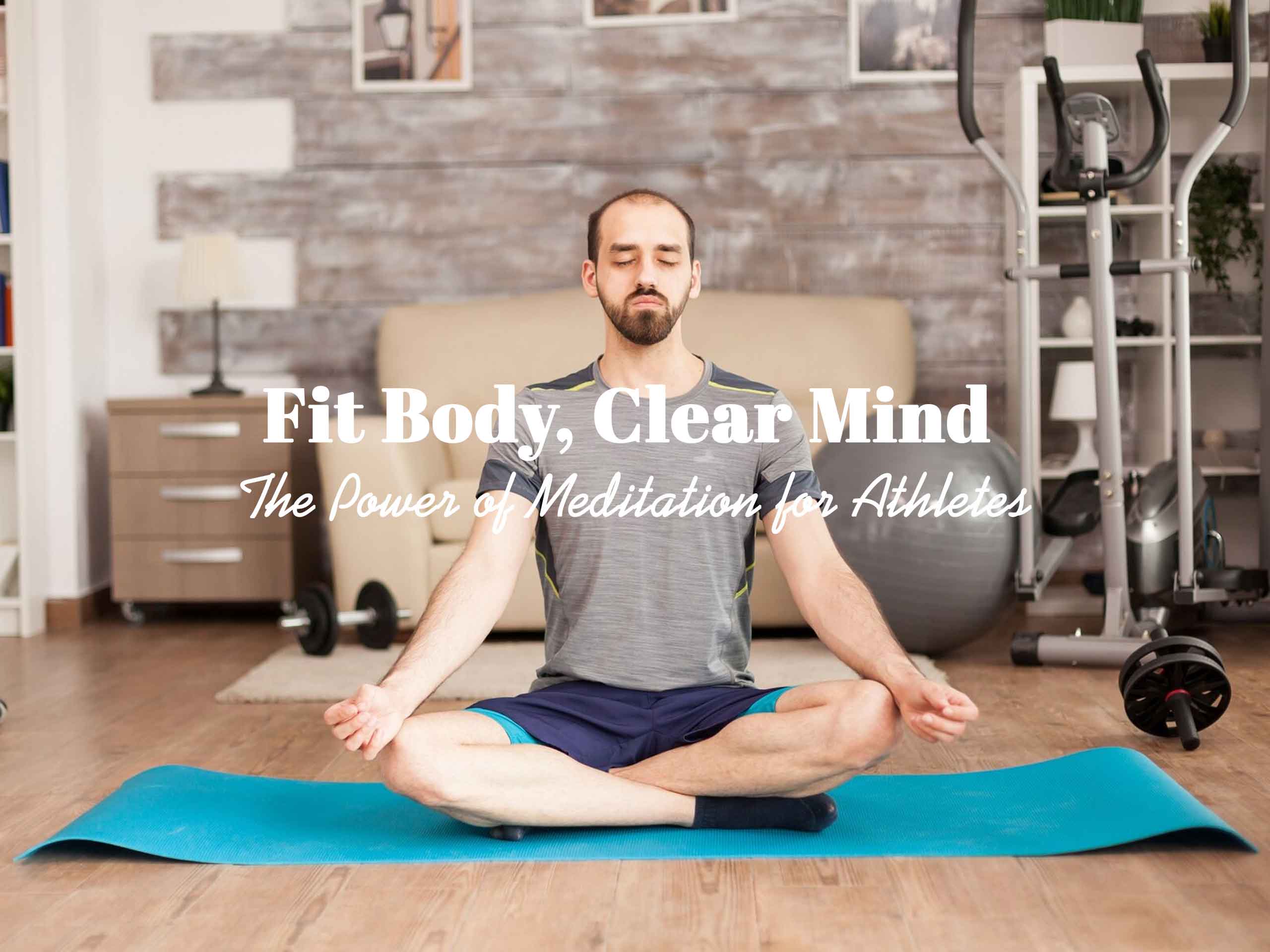Fit Body, Clear Mind: The Power of Meditation for Athletes

Athletes endure physical and mental challenges that often stretch far beyond the field of play. While their physical fitness is praised, the mental strain they experience often goes unrecognized. From the pressure to perform, fear of failure, and intense competition, to managing public expectations and coping with injuries, the stressors are immense. Mental stress, if neglected, can affect not only their performance but also their overall well-being.
Understanding Mental Stress in Athletes
Mental stress in athletes manifests in various ways—anxiety, depression, burnout, irritability, lack of focus, or loss of motivation. The constant need to achieve excellence and maintain an ideal performance threshold creates immense psychological pressure. Over time, this stress can overstimulate the mind, leading to exhaustion and emotional imbalance.
Moreover, societal and media expectations add layers of complexity to an athlete’s mental health. When failure or criticism happens, the resulting stress may lead to self-doubt and reduced self-esteem. Thus, finding effective ways to manage this stress becomes crucial.
One of the most effective tools to combat mental stress is meditation. Meditation has been praised for centuries as a powerful technique to enhance mental clarity, reduce anxiety, and promote emotional balance. Its benefits are backed by modern science, and it's particularly relevant for athletes looking to maintain peak mental and physical performance.
How Meditation Works

Meditation works by encouraging relaxation and focus. Through intentional breathing patterns and mental mindfulness, meditation helps to shift the brain's focus from stress-inducing stimuli to a calmer and more present state. This clarity allows athletes to sort through their thoughts, calm their racing minds, and approach challenges with renewed resilience.
Brain studies have shown that meditation reduces cortisol levels (a hormone related to stress), increases grey matter density in areas of the brain associated with emotional regulation, and improves overall heart rate variability, indicating a more relaxed physiological state.
Meditation Practices for Athletes
Athletes may find different approaches to meditation beneficial depending on their preferences and goals. Here are some examples:
- Mindfulness Meditation: Focusing solely on the present moment can lessen worries about future performances or past failures. Athletes can practice this by concentrating on their breath or bodily sensations.
- Guided Visualization: This involves imagining successful outcomes, like scoring a goal or finishing a race, which helps retain focus and fosters motivation.
- Loving-Kindness Meditation: By fostering positive emotions and self-compassion, it combats the critical inner voice that may arise after losses or setbacks.
- Body Scan Meditation: Athletes can focus on different parts of their bodies, relieving physical tension and promoting mindfulness of their physical state.

Benefits of Meditation for Athletes
The inclusion of meditation in daily routines offers a multitude of benefits for athletes, such as:
- Reduction of Anxiety: Meditation helps calm pre-game nerves and fears.
- Improved Focus: With increased mindfulness, athletes can stay in the zone and avoid distractions.
- Enhanced Recovery: Mental relaxation aids in faster physical recovery by reducing overall stress levels.
- Boosted Resilience: Regular meditation fosters emotional strength to handle setbacks, such as losses or injuries, with greater equanimity.
- Better Sleep: Since meditation quiets the mind, it facilitates better and deeper sleep, which is vital for performance and recovery.
Conclusion
The mental challenges faced by athletes, coupled with the intense pressures of performance and external expectations, mean that managing mental stress is as vital as their physical training. Meditation emerges as a powerful tool to bolster their mental fortitude, improve focus, and nurture overall well-being.
By incorporating meditation into their routines, athletes not only gain mental clarity but also strengthen their ability to face challenges with resilience and grace. It’s a testament to the importance of harmonizing both mind and body for optimal performance. Ultimately, meditation helps athletes not just perform well on the field but also achieve a healthier, more balanced approach to life.
Join our meditation community today and take the first step towards a healthier, more balanced you.
Note: This is for informational purposes only and should not replace professional medical advice. Always consult a healthcare professional before starting any new treatment or session.
Photo: @Freepik, @unsplash @MicrosoftDesigner

